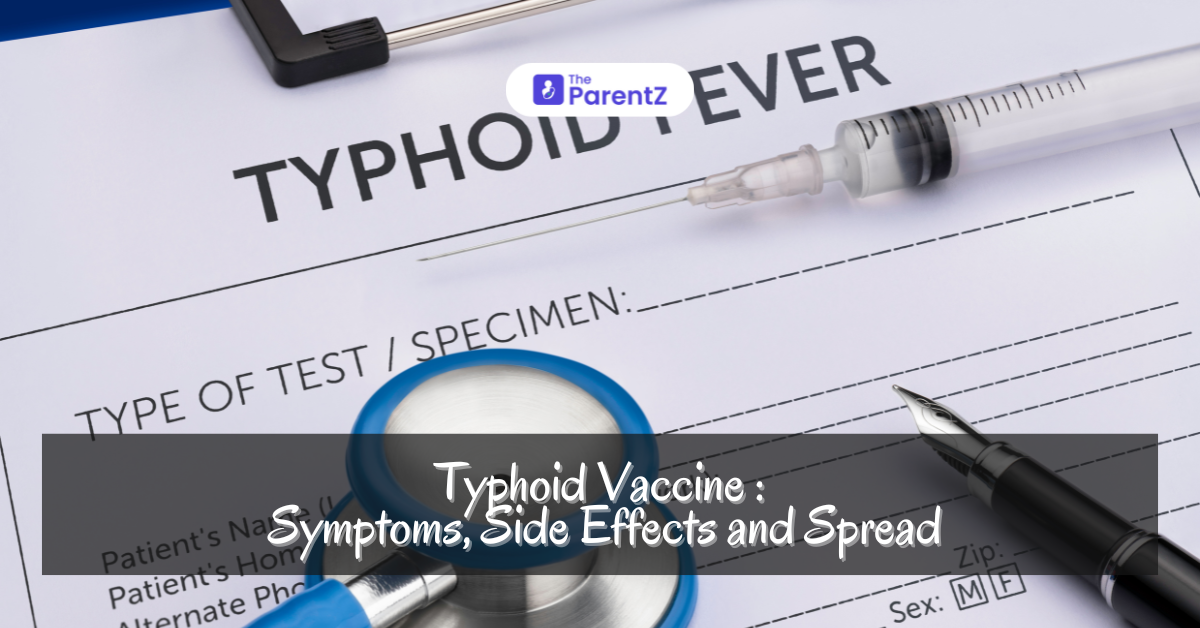When to give a shot?
Two types of typhoid vaccines are available and both have different schedules.
- The Vi polysaccharide vaccine: The Vi vaccine can be given to children over 2 years of age. This is a single dose vaccine which is given by an injectable preparation. A single dose gives protection against typhoid but revaccination is recommended every 3 years. It is recommended for children going for international travel.
- The Ty21a vaccine: It is a type of orally given, live form of vaccine. It can be used for children older than 5 years of age. It has a three dose schedule with an oral dose being given at a day 1 followed by day 3 and day 5.
Why should the shot be given?
Vaccination against typhoid is important to prevent typhoid fever. It lowers the chance of catching the disease and also the severity of the disease. It is recommended for childen at high risk of disease. This includes children who live with somebody who is infected, are travelling to a camp, travelling to endemic countries as SouthEast Asian countries or are attending events where a large number of people are likely to be gathered in close quarters.
What are the side effects?
- Local reactions may develop. This includes pain, swelling and redness in the area where the vaccine was injected. This is not a cause for concern and it will resolve spontaneously over the next few days.
- Fever may develop post vaccination. Fever can be treated at home itself with antipyretics such as paracetamol being given. This thing to consider during giving your young child medicine is that the dose should be correct according to the age and weight of the child and overdosage has to be avoided.
- Some children may have diarrhoea, abdominal pain, nausea and vomiting after the live typhoid vaccine is given.
- Anaphylaxis or an allergic reaction to the vaccine may occur. It can be recognised early by reddening of skin and generalised itching followed by difficulty breathing. A child who develops anaphylaxis should be brought to the hospital immediately. It can be managed by giving a shot of anti-allergic and anti-inflammatory agents immediately.
What is typhoid?
Typhoid is a systemic infection caused by the bacteria S.typhi in humans. It is characterised by a continuous fever, involvement of lymph nodes and gastrointestinal tract.
What are symptoms of typhoid?
There is a set of symptoms for typhoid which develop post infection and these include:
- The child develops high fever with chills initially.
- Child has a general feeling of being unwell and weakness.
- Child complains of headache.
- Child has a cough with a sore throat.
- The child often complains of abdominal pain along with constipation.
- A characteristic ‘pea soup’ or green coloured diarrhoea develops later.
- The child develops a rash all over the body in the second week of infection.
Is typhoid serious?
Typhoid is a bacterial infection which is very common in developing and poor nations of the world. In areas with poor and substandard water supply or sanitation facilities, typhoid can spread very easily. It can take several months for a child to regain their strength. In children who are not treated promptly, complications may also develop.
How does typhoid spread?
There are some common routes of spread of typhoid infection . These include:
- The most common method of spread is through the feco-oral route. Contaminated water, food or milk lead to the spread.
- The infection can also spread through the urine-oral route.
- Direct transmission can occur in cases of poor hygiene. Contaminated hands, utensils or objects lead to direct transmission.
- Flies can also be responsible for transmission of the typhoid bacilli from the faeces or urine to raw and cooked food.








Be the first one to comment on this story.